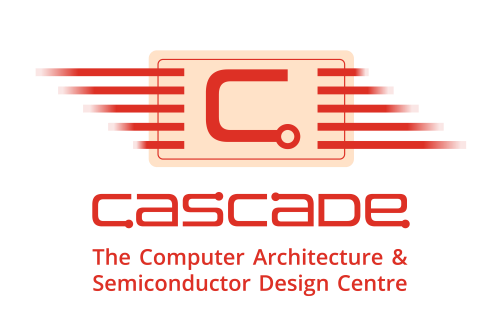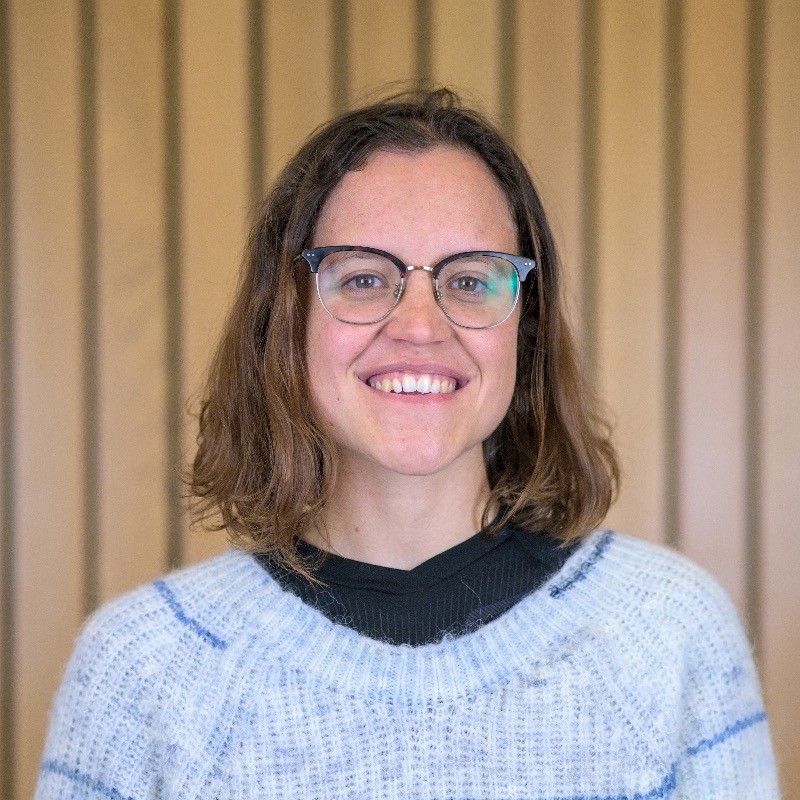Submitted by Rachel Gardner on Wed, 15/10/2025 - 15:41
 The first PhD students are just starting their studies at the CASCADE Centre, our dedicated new Computer Architecture and Semiconductor Design Centre. Welcome, Luisa and Qianhui!
The first PhD students are just starting their studies at the CASCADE Centre, our dedicated new Computer Architecture and Semiconductor Design Centre. Welcome, Luisa and Qianhui!
The Centre was launched here in the Department just over a year ago, in summer 2024, to focus on research that addresses some of the grand challenges in computer architecture, design automation and semiconductors, a critical area of computing that underpins today’s technologies and drives the next generation of computing systems.
This month (October 2025), two of its first cohort of students have begun their research. Their topics are the formal verification of hardware using compiler-provided information, and the security of run-time systems. Two more PhD students are due to start in January and April 2026.
The students' research here has been made possible thanks to the support the Centre is receiving from industry, including from Arm and AMD. We are very grateful to them for their support.
 PhD students provide the foundations of the research we do here in the Department of Computer Science and Technology. Yet too often, funding is in short supply or arrives too late to provide certainty to our students. That formed part of the motivation to set up the CASCADE Centre, along with the desire to work on ground-breaking research and address industrially relevant challenges in the area.
PhD students provide the foundations of the research we do here in the Department of Computer Science and Technology. Yet too often, funding is in short supply or arrives too late to provide certainty to our students. That formed part of the motivation to set up the CASCADE Centre, along with the desire to work on ground-breaking research and address industrially relevant challenges in the area.
Luisa Cicolini is one of our inaugural PhD students. She is a graduate in Computer Science and Engineering of Politechnico di Milano, where she worked on optimising a compiler for the compilation of regular expressions.
Verification of hardware
Luisa has been working as a research assistant here for the last 20 months. Now she is embarking on her PhD, in which she will be integrating verification into the Electronic Design Automation (EDA) compilation flow, using compiler-inferred data to distribute verification efforts across the multiple IRs that this tools use. This will enable the mechanised semantics to be verified with as little overhead as possible on the overall compilation and design processes.
Hardware/software co-design
 Also starting her PhD now is Qianhui Wang. Qianhui has an honours degree in advanced computing from the Australian National University and then came to Cambridge to complete her MPhil in Advanced Computer Science. Qianhui is interested in the areas of computer systems and security, particularly the approach of tackling problems through hardware/software co-design.
Also starting her PhD now is Qianhui Wang. Qianhui has an honours degree in advanced computing from the Australian National University and then came to Cambridge to complete her MPhil in Advanced Computer Science. Qianhui is interested in the areas of computer systems and security, particularly the approach of tackling problems through hardware/software co-design.
In her PhD, she will be exploring the use of CHERI hardware support for language runtimes, such as in CPython and the V8 JavaScript engine. To achieve this, she will investigate interactions between garbage collectors in the language runtimes and CHERI-style revocation for C/C++, as well as carrying memory-protection properties from type- and memory-safe languages into support libraries via foreign-function interfaces.
Welcome Luisa and Qianhui. We hope you are the first of many students at the CASCADE Centre.

